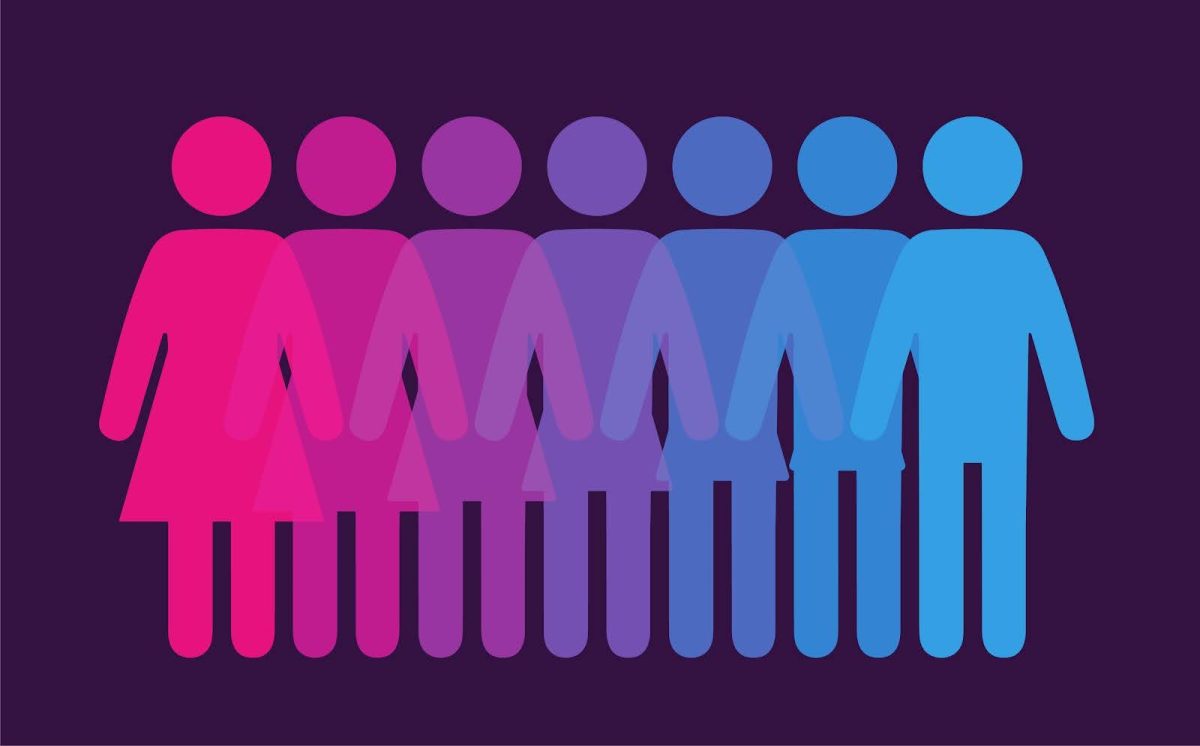In a modern society with the new scope of politics, a recurring point is made that you shouldn’t end relationships over politics or judge someone for their political beliefs. However, when debates become a public slander campaign, and human rights are on the ballot, where is the line drawn?
There was once a time when American politics were based on problem-solving and power balances; people in any party could disagree respectfully and ultimately compromise to solve the problem. This is why the conversations regarding politics always start with “you can have different opinions with people and still be friends.”
Let’s take for example: Gay marriage rights. Realistically, regardless of the way you or your religion looks at it, it does not personally affect you if you are not gay. Legalizing the ability for two individuals of the same sex to marry does not take away the ability for two individuals of the opposite sex to marry. It does not promote hate to straight couples, it does not take money out of their pockets, and it does not harm them. Most oppositions to gay marriage rights are based upon the fact that opposers believe marriage is supposed to be between a man and a woman- a traditional value usually rooted in religion. Americans often reference the First Amendment when defending their own motives, yet fail to remember an important point it makes; while the nation is majority Christian, this is not a Christian nation. It is a nation in which you are free to be Christian. Voting based upon your religious beliefs any religion- especially when it restricts the rights of others that do not specifically affect you is technically unconstitutional and wrong. Everyone should not be held to laws that only appease your opinions. Your gay friends and family members should question your outlook on them should you not want them to marry and experience love the same way you do.
This example can be used similarly for many current human rights debates. A biological woman deciding to change her pronouns to he/him does not affect you (and the argument that people are going through such immense changes just to watch you use the bathroom is a harmful misconception that is never backed by authentic evidence, so please stop using it). A woman getting an abortion does not personally affect you, nor does men and women receiving equal pay personally affect you, nor does gender, racial, or sexuality equality of any kind. Upholding beliefs that restrict the personal freedoms of others in instances where their choice does not harm you, does make you appear intolerant.0.
Another major shift in politics has occurred regarding the respect and class between two parties while discussing policy and plans. Let’s look back to a 2008 Presidential debate at a town hall meeting in Lakeville, Minnesota between former President Obama and Senator John McCain. Candidates gave voters the microphones to ask questions and when one voter made racist remarks regarding Obama, McCain came to his defense.
“I can’t trust Obama. I have read about him, and he’s not, um, he’s an Arab,” a woman said to McCain.
McCain grabbed the microphone from her, cutting her off. “No, ma’am,” he said. “He’s a decent family man [and] citizen that just I just happen to have disagreements with on fundamental issues, and that’s what the campaign’s all about. He’s not [an Arab].”This kind of respect was almost always the standard, which made it simple for people who may align with/ vote for two different parties to still maintain a relationship; politics are about problem-solving, meant to be impersonal, however looking more recently, debates and presidential campaigns have become more slanderous and uncivilized in operation.
In the 2024 Presidential debate between former President Donald Trump and Vice President Kamala Harris, Trump made false claims about Haitian immigrants in Springfield, Ohio eating the pets of residents.
“They’re eating the dogs, the cats. They’re eating the pets of the people that live there.” Trump said. Trump later makes suggestive comments regarding Harris’s race, following conspiracy theories online due to the fact that Harris is of both Indian and Jamaican descent.
Asked about his past comments falsely suggesting that Harris “happened to turn Black” for political purposes, Trump said he “couldn’t care less” about her race.
“I don’t care what she is,” he said. “I read that she was Black. Then I read that she was not Black.”
It is only very recently that this shift occurred, and in a democracy where you elect someone to represent your beliefs and ideas, it is very reasonable to question the morals of your peers when they display unwavering support for politicians who make such discriminatory statements. In theory, we elect and support people that we agree with or like somewhat. If a politician’s rhetoric and policies consistently contain dog whistles (a subtly aimed political message that is intended for and can only be understood by a particular group) of racism, homophobia, sexism, or general hate, it’s reasonable to assume you also feel this way or at the very least, it’s not a dealbreaker for you. Families of Haitian immigrants (who are planning on Applebees for dinner and not your dogs), likely would have a hard time associating with people who proudly endorse these kinds of statements about them, the same way you wouldn’t associate with any of your colleagues/family/community members that bad mouth you. The greater difference is that politicians who say these things on a national platform promote hate crimes and harm to marginalized communities, and it should not be tolerated.
Though we are told topics like politics shouldn’t shift the relationships you already have with people, and everyone deserves to have their opinion voiced and heard, with the stakes so high and the liberty of people’s lives being up for debate, these things cannot be reduced to simple conversations and it is crucial for a better future for everyone that we as Americans return to respect, dignity, and tolerance in our political landscape. These are moral issues that go far beyond a political landscape. It is time we hold ourselves and each other accountable for not only what we believe, but how these beliefs affect others.






